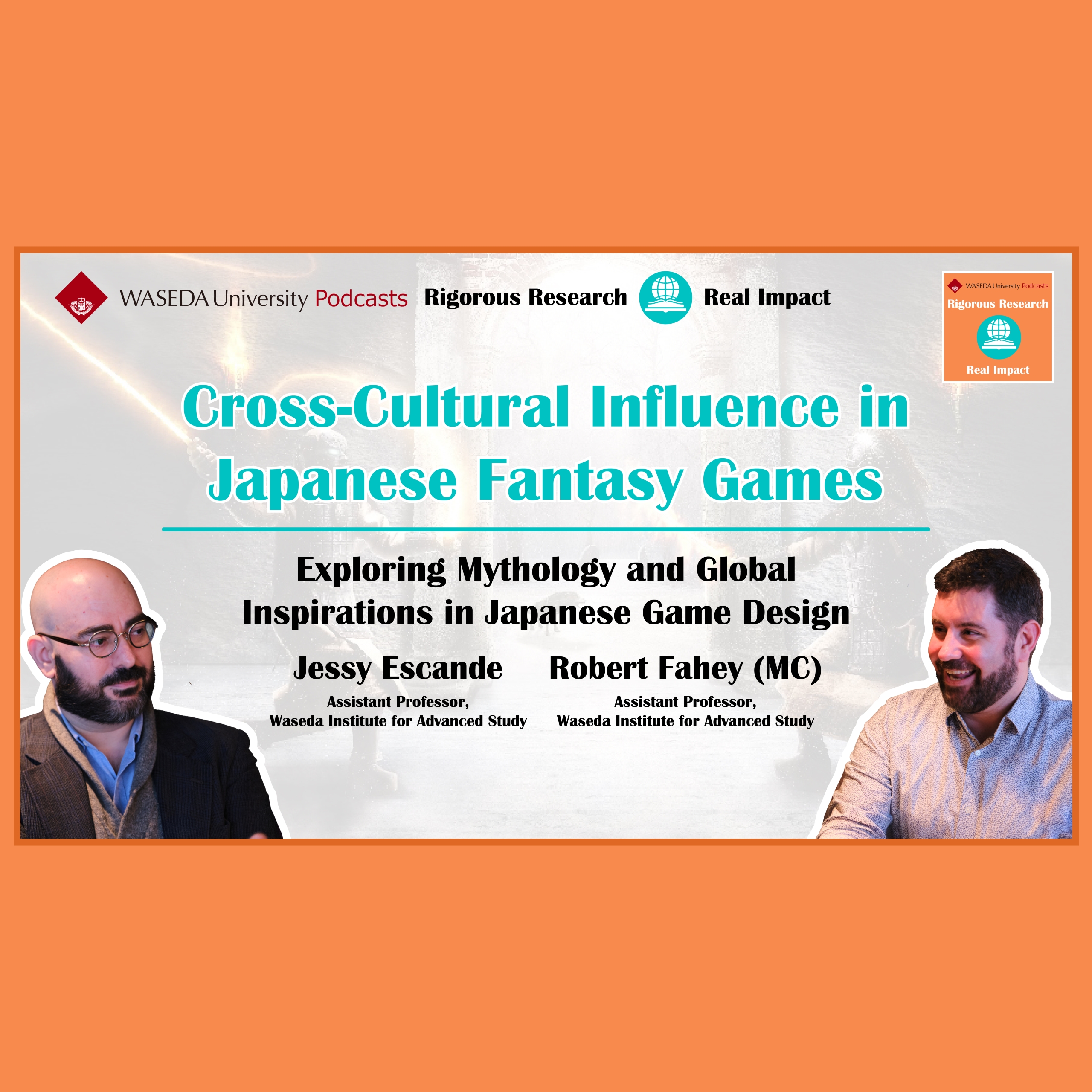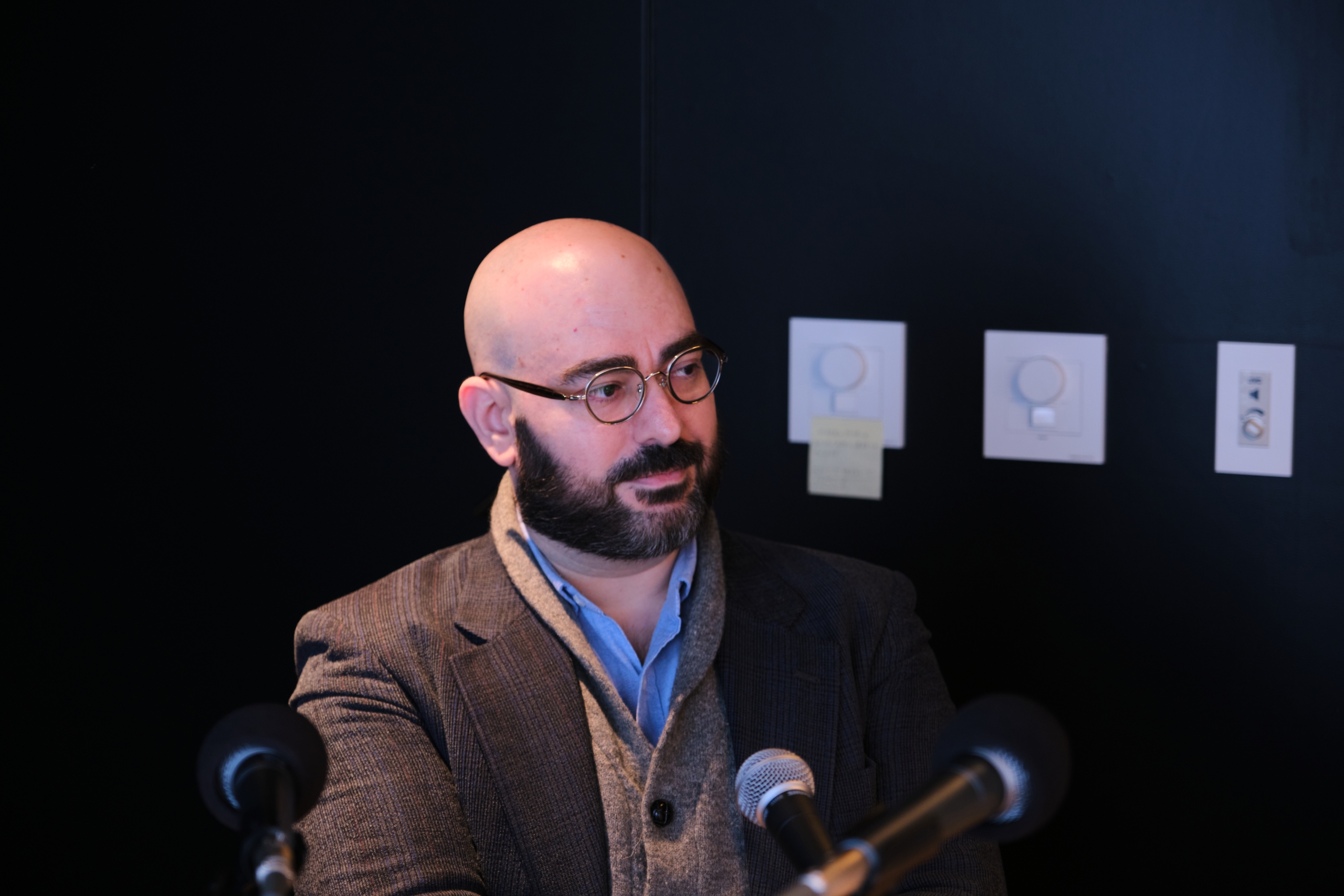[Podcast Column] Cultural Blind Spots, Globalization, and Creators in Japan
Thu, May 29, 2025-
Tags
The first 8-episode series of Waseda University’s English podcast “Rigorous Research, Real Impact” is currently streaming for free on Spotify, Amazon Music, Apple Podcasts, and YouTube.
Assistant Professor Jessy Escande (Waseda Institute for Advanced Study) is an expert in Japanese fantasy games and the cultural motifs that influence them. The excerpt in this column focuses on his research regarding cultural blind spots and how globalization affects creators in Japan.
You can read the full transcript by clicking the above episode banner.
Question: In your research, you identify a number of cultural blind spots among creators. Could you talk a little bit about some examples of those blind spots and how they impact the representation of culture in games?
Professor Escande:
Yes. I mostly focused on that aspect of foreign cultural reception in Japanese fantasy in my work on cultural appropriation. Cultural appropriation has taken on very negative connotations, but it originally had a more neutral meaning in anthropology, describing natural dynamics of cultural exchange.
I try to return to this neutral perspective while also recognizing that some forms of appropriation can be problematic, often when they are done ignorantly or mistakenly, even without harmful intentions. This is where the blind spots you mentioned become relevant. Blind spots operate along two main lines.
First, when these motifs are viewed solely as fantasy elements, they are often freely reimagined without much consideration for their original context. While this has fueled a rich Japanese fantasy imagination that is widely appreciated in the west, it can create blind spot about motifs, particularly those with religious significance.
The second axis of blind spots is the lack of understanding that religious elements in general may deserve such consideration, or at least recognition of their original cultural meaning. Such issues are tied more directly to how foreign motifs are absorbed into Japanese fantasy, like the golem. Before my own research on the golem, Professor Masahiko Date, an expert on Judaism and American literature, warned that the golem’s portrayal as an indiscriminately violent monster in Japanese role-playing games might be problematic given its traditional role as a protector of the Jewish people in related folklore.
Question: What impact has globalization had on creators in Japan?
Professor Escande:
So Japanese popular culture is now, in effect, global. We have widely recognized icons like Pokémon and Mario. But beyond that, Japanese popular culture has a deeper influence on Western media.
The challenge, though, is that many creators are still working with the mindset of the last century where foreign sensitivities were not a consideration, even when using foreign sources of inspiration. There is often little consideration for how Japanese titles might be received in countries from which they draw significant cultural references.
Part of the reason Japanese fantasy resonates so much in the west is that it presents an imaginary that would not be created locally. Adjusting Japanese content to align with foreign standards could risk stifling that uniqueness.
And beyond that, free creative expression is essential. But publishers as businesses may need to be more mindful about what they publish and where to prevent potential issues. The best cultural exchanges are based on mutual understanding, but unfortunately that’s not always the case now.
In my research, I describe a large portion of foreign cultural reception in Japanese fantasy as commodification of foreign cultures. So balancing respect for foreign sensitivities while preserving the richness of Japan’s cultural reinterpretations is not easy. Drawing a line between what is acceptable and what is not, what crosses ethical and economic considerations is very hard.
That’s also why I avoid making statements on what Japanese creators or publishers should do. It is not my place. What I can do in my work is providing scholarly insight that the Japanese entertainment industry can use to make informed choices.
About the Guest:
Assistant Professor Jessy Escande
Dr. Jessy Escande holds a PhD in comparative literature from Osaka University and is currently an Assistant Professor at the Waseda Institute for Advanced Study (WIAS). At WIAS his researches the reception of foreign cultures in Japanese fantasy works, and particularly the role of games as cultural brokers. Prior to taking his position at Waseda he served as a teaching fellow and researcher at Osaka University.


![[Podcast Column] Cultural Blind Spots, Globalization, and Creators in Japan](https://www.waseda.jp/top/en/assets/uploads/2025/05/Podcast-Epi-4-Full-Quality.png)













